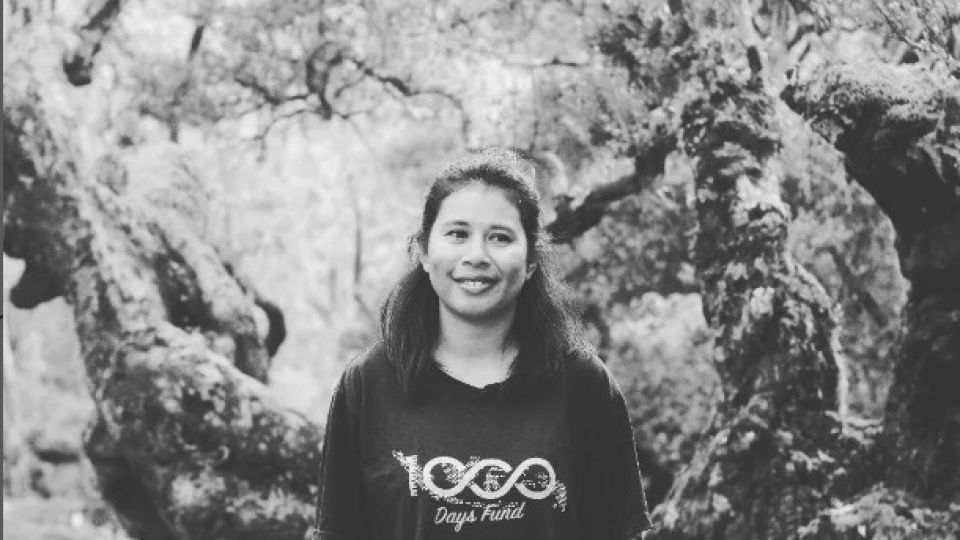November 16, 2022
JAKARTA – ‘What I’ve learned’ is a new column that presents candid interviews with policymakers, artists, activists and businesspeople on facing challenges and making a difference.
Naomi is dead tired. She’d never admit it, of course, but she is. Yesterday, in the middle of the rainy season, she forged a raging river on a 12-hour trek to visit mothers and children she oversees as part of her portfolio with the 1000 Days Fund. But Naomi and her colleagues believe beyond a shadow of a doubt that mothers deserve robust, ever-improving health systems so they can stay safe and healthy before, during and after pregnancy. So tomorrow Naomi will be back out in the village. Just like she was last week. And the week early. Armed with a little more than a smile, a growth chart and a big heart, Naomi oversees more than 10,000 mothers and children across Kupang regency, some 3,000 kilometers from the sprawling metropolis of Jakarta.
When I was pregnant, I only got two check-ups. And I didn’t take iron and folic acid, even though it was free and readily available. No one taught me the importance of the first 1000 days of my child’s life […] that 80 percent of brain development happens in the first 1000 days. But now, for me, I can do that for other people. I can do this for my community. I can help pregnant moms.
In the village, they call me “Mrs. Stunting”. My job is to go door-to-door and talk with the moms to ensure they know what it means to raise happy, healthy children. They have to understand why it is important to wash their hands with soap or breastfeed their children instead of giving them formula milk. So you have to talk to people in a friendly manner; you can’t lecture them. You have to give them the strength they need to face their problems.
This is what people from the big cities never seem to realize: No one wants to have someone come into their home and lecture them, especially regarding health care.
Another thing no one from Jakarta seems to realize is that people in the village have food. Sometimes I eat healthier in the village than I do when I am home. People in the village aren’t lazy. They have everything they need—healthy soil for growing vegetables, lush gardens, access to water—but they don’t have an accurate understanding of health care or child care […] parenting […] look like.
People don’t want to be patronized. Doing a cooking class for them one time will not change their behavior. We are talking about stunting and chronic malnutrition. One cooking class isn’t going to change that. But building relationships, being empathetic, asking questions, just listening to people and leading with your heart create a path for change.
We have to be humble. I’ve been lucky. I used to work with Kak Butet (Butet Manurung). I learned a lot from her. She taught me to do everything with heart.
I’ve learned that consistency is what yields results. Going to a village or a house one time doesn’t change anything.
Sometimes I go to a house and a 6-year-old kid is watching over a 2-year-old kid, and I say, “Where’s your mom?” and the kids say “She’s out in the field […] farming” or “out in the forest.”
I’m always learning. Learning how to talk about health care from the midwives, we work with […] learning how to better use the data we collect and always learning. I was trained as an accountant. My degree is in accounting. But I love it out here in the village. I could never sit behind a desk and fill in forms.
I’m originally from Kupang. It’s hard to describe the joy of working in your community—building health systems in your community. There’s just this joy I can’t put into words. And now, I oversee all of the 1000 Days Fund programs in Kupang regency, which covers over 27 Sub-district health facilities and more than 10,000 mothers and children under two.
Sometimes, because the roads are so bad, or there’s a landslide or a big river we have to figure out how to cross, it takes me 12 hours to get from one village to the other. But it all pays off when I see that mom and her kid […] when I leave that house or that village, knowing that those babies will grow up healthy.
Sometimes I lie. But not the way you think.
I don’t always tell the truth. Sometimes I meet mothers with children born with a cleft lip or webbed feet and I know they are scared to take their kids to see a doctor. So I have to bend the truth and tell them what they want to hear to ensure they do the right thing.
So it’s my job to make sure pregnant women get eight check-ups. And it’s my job to ensure caregivers know why their kids must take deworming medicine or why kids must be breastfed. For the other quality assurance officers and me at 1000 Days Fund, what’s important is that people understand the “why” of the behaviors we are trying to improve.
Many people in the city don’t know about Posyandu [village health post]. Still, for many people living in the village, this is their only natural source of healthcare and healthcare information regarding their children. We must invest in training community health workers and improving counseling at the Posyandu. People come to Posyandu regularly. But they need world-class care, just like you would in a big city.


